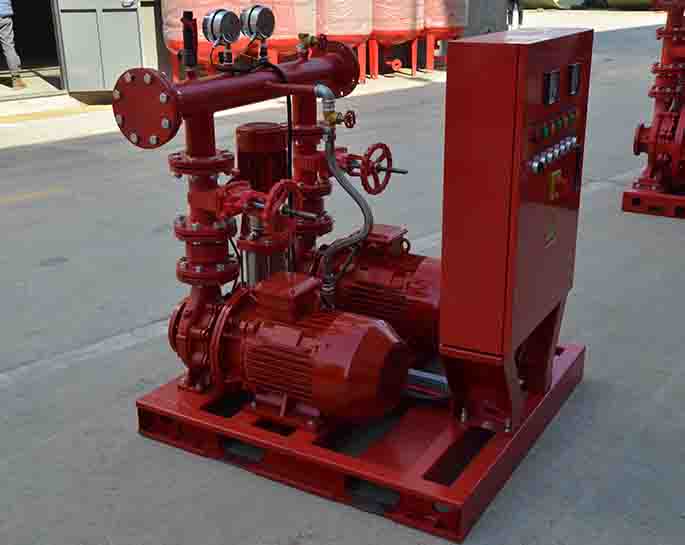What is the difference between a diesel engine fire pump and an electric fire pump?
Apr 04, 2023
Share:
Fire pumps are essential components of any fire suppression system designed to provide an adequate water source to fire sprinkler systems. Fire pumps are most commonly powered by either electric or diesel engines. Electric fire pumps are powered by electricity, while diesel fire pumps are powered by diesel engines.
The main difference between a diesel engine fire pump and an electric fire pump lies in their power sources. As the name implies, electric fire pumps are powered by electricity, while diesel fire pumps are powered by diesel engines. Diesel engines are more powerful and efficient than electric motors, making them ideal for large-scale fire suppression systems.
Another difference between diesel and electric fire pumps is the cost. Electric fire pumps are generally less expensive than diesel fire pumps and require less maintenance. Diesel fire pumps, on the other hand, require more frequent maintenance and are more expensive to operate due to higher fuel costs.
The type of fire pump that is right for a particular application depends on several factors including cost, availability, and the size of the fire suppression system. Electric fire pumps are ideal for smaller applications, such as homes and small businesses, where power is readily available. Diesel fire pumps are best suited for larger applications, such as commercial buildings and industrial complexes, where power is not as readily available.
Regardless of the type of fire pump that is chosen, it is important to ensure that it is properly maintained and inspected regularly. This will ensure that the fire pump is in optimal working condition and ready to provide an adequate water source for fire suppression in case of an emergency.

The main difference between a diesel engine fire pump and an electric fire pump lies in their power sources. As the name implies, electric fire pumps are powered by electricity, while diesel fire pumps are powered by diesel engines. Diesel engines are more powerful and efficient than electric motors, making them ideal for large-scale fire suppression systems.
Another difference between diesel and electric fire pumps is the cost. Electric fire pumps are generally less expensive than diesel fire pumps and require less maintenance. Diesel fire pumps, on the other hand, require more frequent maintenance and are more expensive to operate due to higher fuel costs.
The type of fire pump that is right for a particular application depends on several factors including cost, availability, and the size of the fire suppression system. Electric fire pumps are ideal for smaller applications, such as homes and small businesses, where power is readily available. Diesel fire pumps are best suited for larger applications, such as commercial buildings and industrial complexes, where power is not as readily available.
Regardless of the type of fire pump that is chosen, it is important to ensure that it is properly maintained and inspected regularly. This will ensure that the fire pump is in optimal working condition and ready to provide an adequate water source for fire suppression in case of an emergency.


.png)
.png)

.png)


